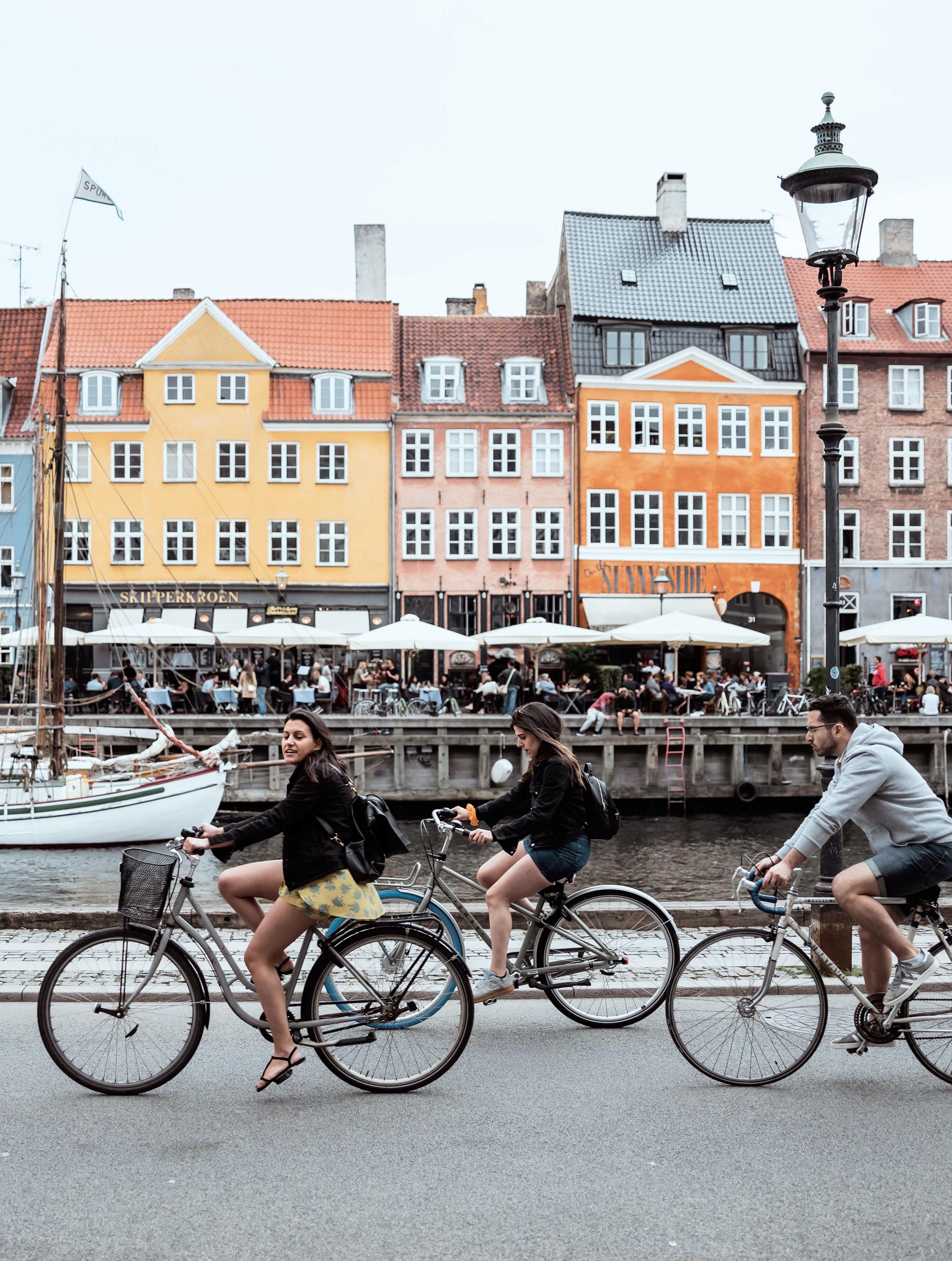
9 minute read
Sustainable city breaks
DO YOUR civic duty
Is it possible to have your city break aboard and still be a responsible traveller? Laura Gelder looks for ways to go green on an urban holiday
Advertisement
Gone are the days when we can feel smug for hopping on a low cost carrier on a Friday night after work (mini bottle of warm Prosecco in hand), spending the weekend in another country’s capital – exploring, bar-crawling, eating exciting food – and popping back in time for work on Monday morning. These days we all know that a city break, in its typical form like this, is not a particularly sustainable choice for a holiday.
It’s a truth universally acknowledged that if you’re trying to cut down on your carbon emissions, then flying off on one long holiday is preferable to lots of mini breaks. But if, for whatever reason, you are booking a short city stay, there are a few ways you can make it more eco-friendly and there are also some destinations which will inspire you to live a more sustainable lifestyle back home.
LOCATION, LOCATION, LOCATION
If you’re trying to be a responsible ‘city breaker’ then it’s all in the planning, and that starts with your choice of destination. Ask yourself, will your visit have a positive impact or a negative one?
This summer, the authorities in Barcelona have announced the introduction of a series of restrictions to curb the disruption that over-tourism causes in this perennially popular city break destination. The Guardian newspaper reported how, after a covid-induced hiatus, the same problems of over-crowding and anti-social behaviour were rearing their ugly head in the Catalan city this summer. The newspaper sums up the negative impact of tourism when it quotes local resident Martí Cusó, who lives in the busy Gothic Quarter: “My barrio is so saturated with tourists it’s impossible to meet someone in the street or for children to play or even to get a good night’s sleep.” Do your research and find a city where, instead of contributing to a situation like this, your presence will be beneficial. An hour and a half away from Barcelona is Girona, another proud Catalan city – located on a river but half an hour from the Costa Brava – with a medieval old quarter, and pretty plazas with buzzing bars and restaurants. Yet it gets far less tourists than Barcelona.
And if you do want to go to a popular city, consider choosing a less busy time to visit so you are helping to spread
Copenhagen Febiyan
Book a city break
Sustainable cities
SAN FRANCISCO Recycling is required by law in the Bay City and plastic bags were banned back in 2007.
ZURICH Over 80% of the city’s electricity comes from renewable sources, more than 70% of its hotels are certified sustainable and it has a free bike scheme.
SINGAPORE The ‘city in a garden’, Singapore has nearly 50% green cover and an incredible 72 hectares of rooftop gardens and green walls.
MONTEVIDEO Uruguay creates more than 97% of its electricity from renewables and the capital is known for its green spaces and walkability.
ABU DHABI The city is championing solar energy and is home to Masdar City, a purposebuilt low-carbon urban community housing clean tech companies.
CAPE TOWN The Mother City’s buses are electric, it has a great network of bike lanes and a proliferation of green spaces and farmer’s markets.
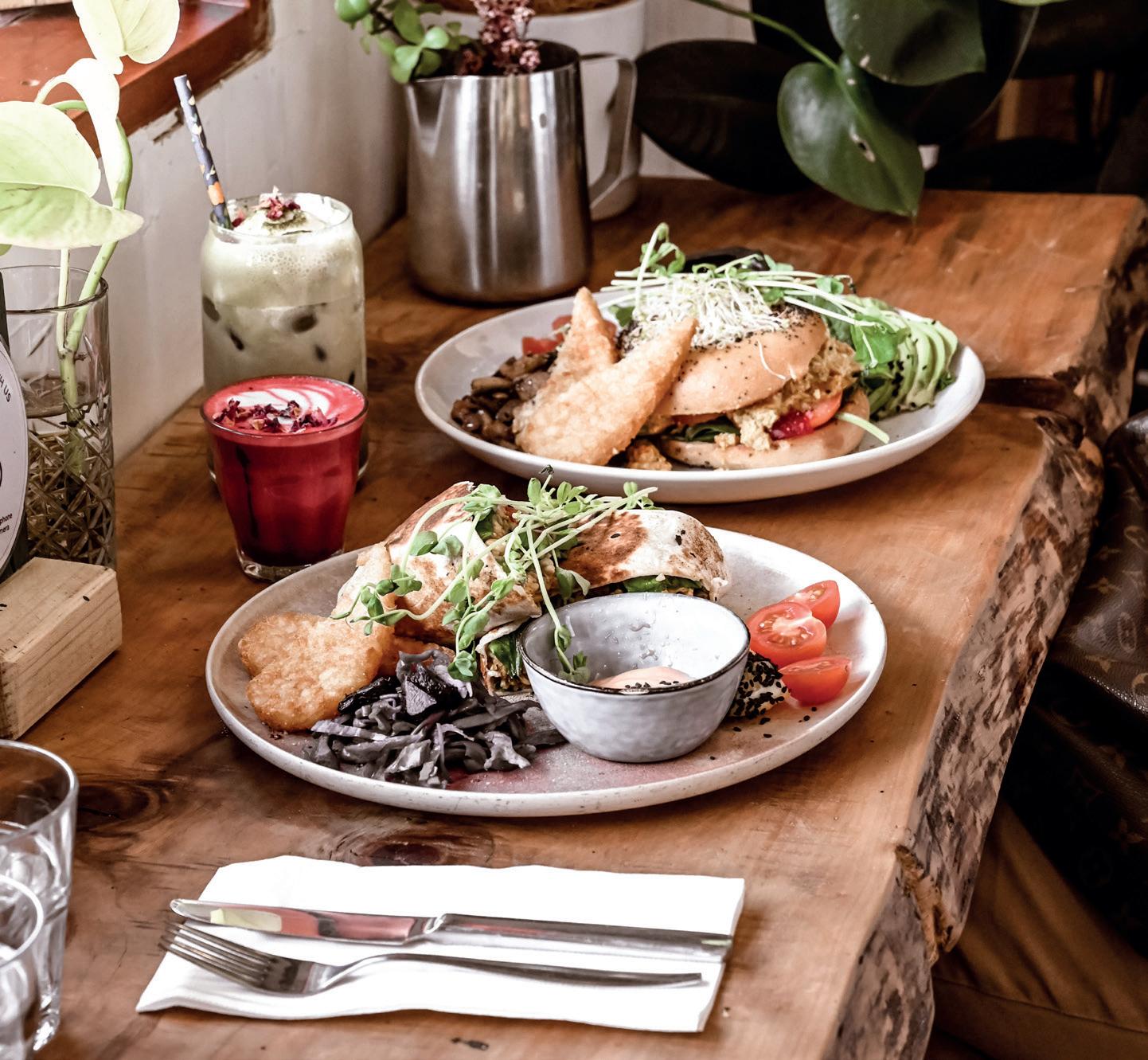
seek out restaurants that source ethically
the benefits of tourism more evenly. There are so many beautiful and fascinating cities within easy reach of the UK, many of which you may not even have heard of (check out our round-up of alternative city breaks here). Open a map and open your mind to new possibilities – and the chance to be a trailblazing city breaker.
IT’S ABOUT THE JOURNEY
Can you take a train or a ferry to your destination? If there are connections this way and you have the time to commit to a slower form of travel then this is the greenest action you can take. Located on the edge of Europe, the UK is blessed with its proximity to nearly 50 capital cities, as well as convenient transport links to the continent. Eurostar connects us direct to France, Belgium and the Netherlands by train and from these destinations the ongoing connections are endless. Only this year, Eurostar and French/Belgium train operator Thalys merged, opening up the possibility of direct connections to Germany in the future. As an island nation, we also have numerous ferry ports, connecting across the North Sea to the Netherlands and Belgium, across the English Channel to France and Spain, and over the Irish Sea to Ireland. Let’s be honest, a train or boat is a more charming mode of transport than a plane. You can forget the scramble at security to take your laptop out and cram your liquids into a sandwich bag. Instead, picture yourself sipping a glass of something cold as the bucolic French countryside swishes by, or standing on a ship’s deck, breeze in your hair, as your ferry docks in an exciting foreign port.
Jojo Yuen
GET ABOUT GREEN
By its very nature, a city break usually negates the need for a car. Cities usually have good public transport compared to small towns or the countryside, and a concentrated urban area lends itself to walking. A great way to ensure you stay human-powered but still cover the ground you
need to, is to hop on a bike.
There are many cities famous for being cycle-friendly but none more so than Amsterdam. In fact, the whole country is bike mad and a quarter of the population get on their bike every day – it helps that the Netherlands is one of the world’s flattest countries. There is no better way to feel like a local in Amsterdam then joining the bike lane (there are about 320 miles of them) – just make sure you read up on the rules of the road first.
Copenhagen is another cycleloving city, where 62% of the locals travel to school or work on a bike. Cycling around Denmark’s capital is a dream thanks to a proliferation of cycle lanes and even dedicated bike bridges. These are something of an architectural marvel as well, ranging from the iconic Bicycle Snake on the city’s harbour, to the metal curves of Lille Langebro, which connects the city centre to the island of Christianshavn.
All around the world there are cities with bike schemes similar to our Boris bikes in London. Brussels has Vilo!, Vienna has Citybike Wien and Milan has BikeMi. Switzerland and the Netherlands both have nationwide schemes, called Publibike and OV Fiets respectively. In Paris, and in many other cities, the emergence of electric bikes make cycling more universally attractive. Paris’ Vélib’ Métropole bike scheme offers both standard push bikes (green) and electric bikes (blue). And it’s not just in Europe, Washington DC’s Capital Bikeshare and New York City’s Citi Bike are some of America’s most successful.

Bruce Mars
MAKE SMART CHOICES
There are myriad other ways you can make your city break is more responsible and they all involve doing your research, or speaking to a knowledgeable agent at Charitable Travel! Your choice of hotel can have a big impact but it can be hard to know what’s truly sustainable and what’s just green-washing. Seeing how a hotel adheres to official

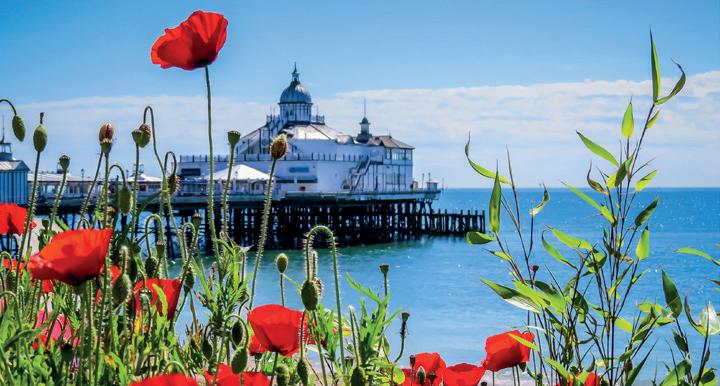
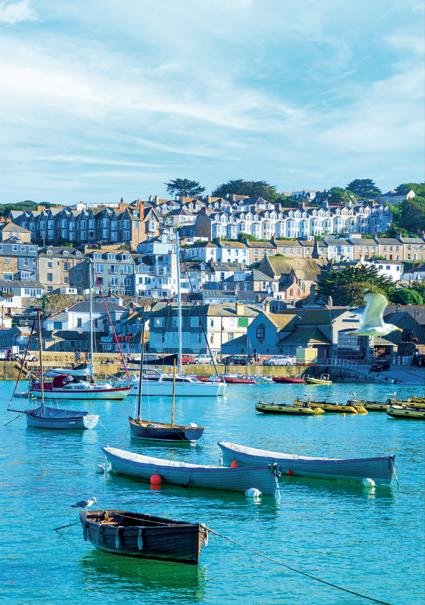
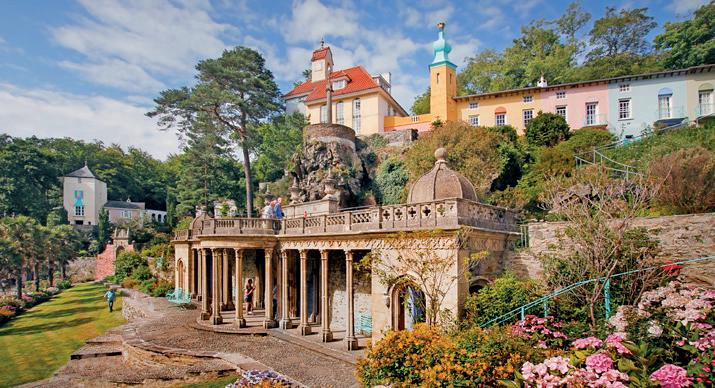
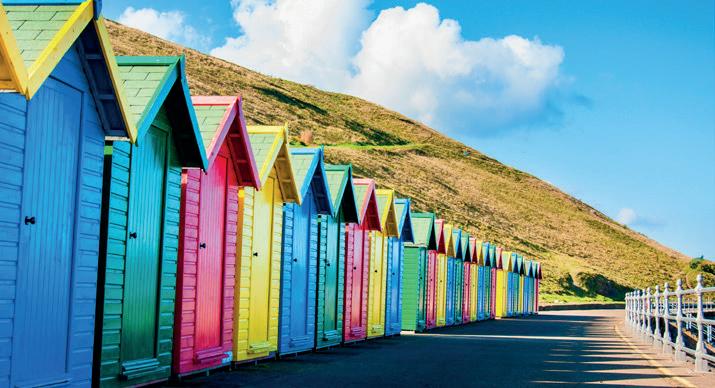
England’s Coast · Heritage & Countryside · Wales Scotland · UK Islands · Ireland · Events & Entertainment Short Breaks · JG Premium BRITAIN & IRELAND By Coach & Air 2022
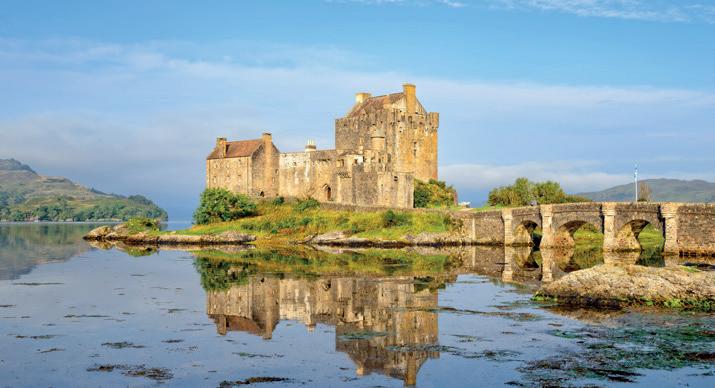
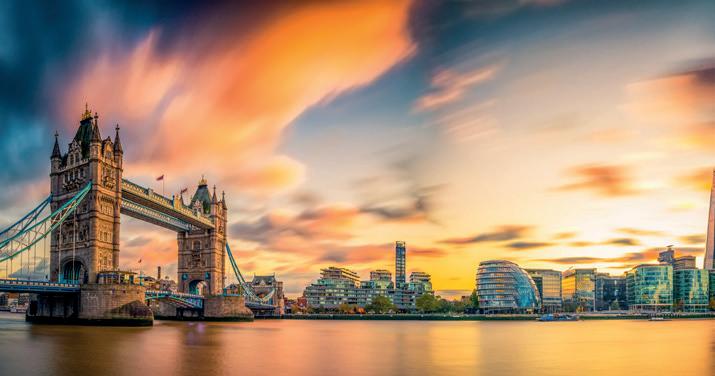
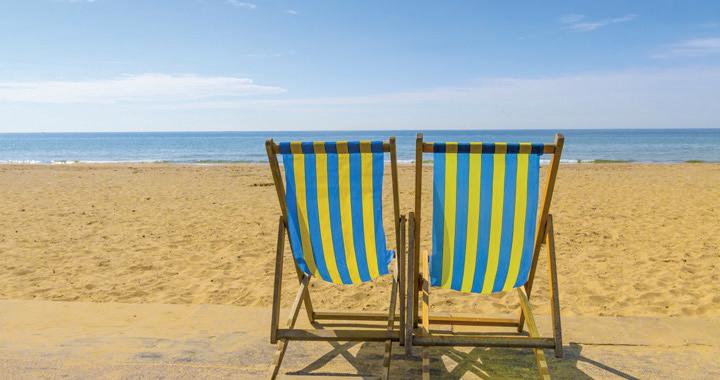
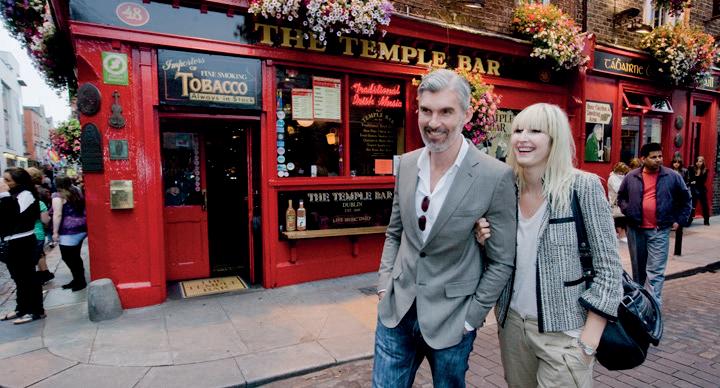
Explore the British Isles & Ireland in 2022 with us!
We have a fantastic collection of great value getaways across a range of spectacular destinations in the British Isles. Your customers can makeup for lost time and treat themselves to a wonderful Just Go! Holiday this year! BOOK NOW WITH CHARITABLE TRAVEL on 020 3092 1288 or visit our website charitable.travel
hit the road on foot or by bicycle
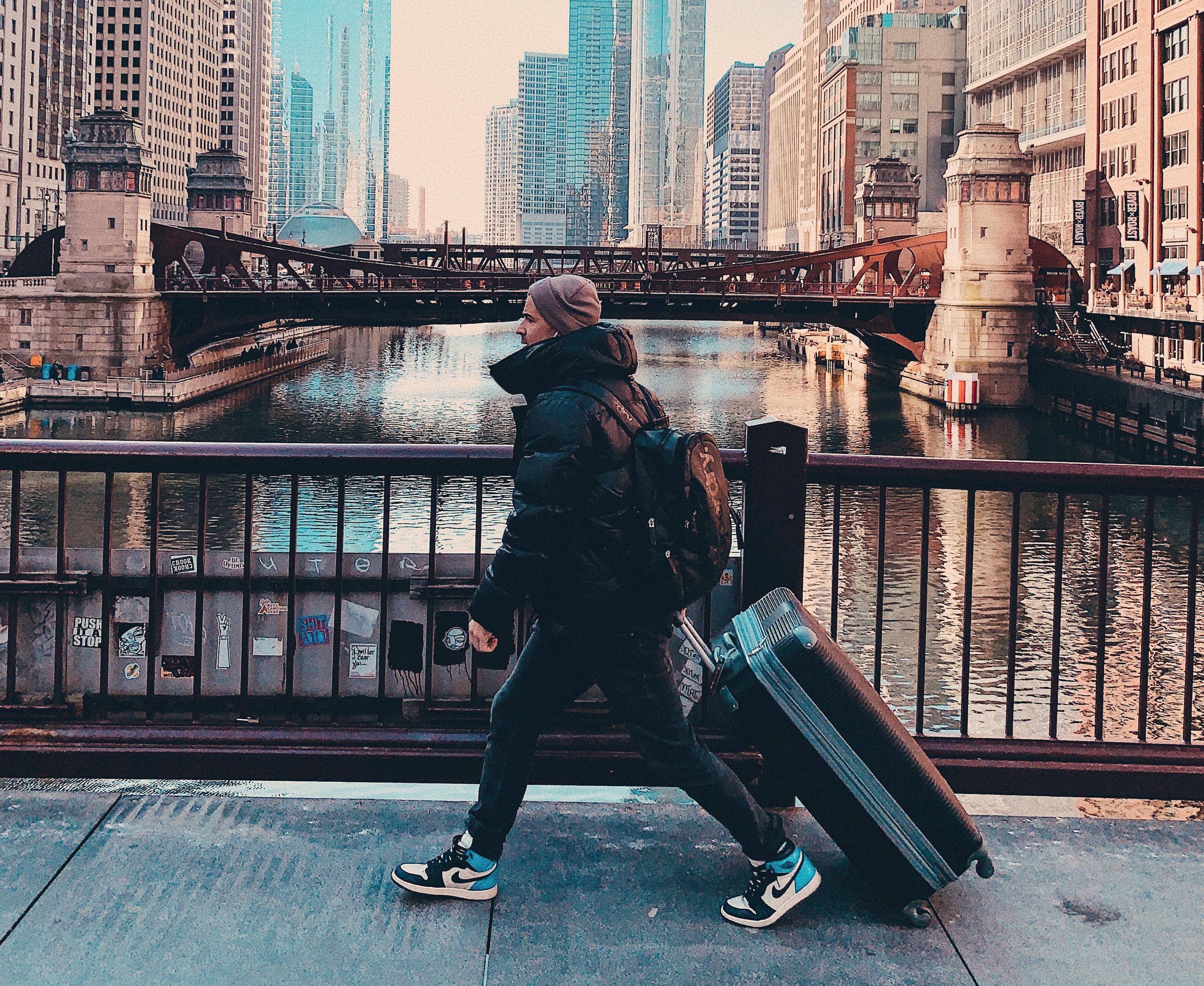
green certification schemes can help, and you can consult the Global Sustainable Tourism Council’s website to see which schemes are worthy. There are many ways hotels try to be sustainable. Corner London City claims to use 41% less water than other UK hotels (thanks to special shower heads mixing water with air) and emit 67% less CO2 (it has solar panels and energy saving LED lights). Single-use plastic is banned, food is as locally sourced as possible and furniture is made from up-cycled materials - think lamps made using old hosepipes. In Vienna, the new Magdas Hotel will open near Prater Park this August and comes with a social purpose as well as a green ethos, with its team of ex-refugee staff. But don’t stop at where you sleep – research where you eat and find places that source locally, serve sustainable fish and ethically raised meat, and avoid waste. You can also make sure your souvenirs are locally made (not in China!) and you support small local businesses rather than chains. And if it’s plastic, leave it on the shelf. As the Scouts say: the most important thing is to ‘be prepared’; but if you’re researching how to be more sustainable, then you are already well on your way to being a more responsible city breaker.
Oleksandr Baiev
Urban legends
Invisible Cities is an awardwinning social enterprise that trains people who have experienced homelessness to become walking tour guides of their own UK city. invisible-cities.org










